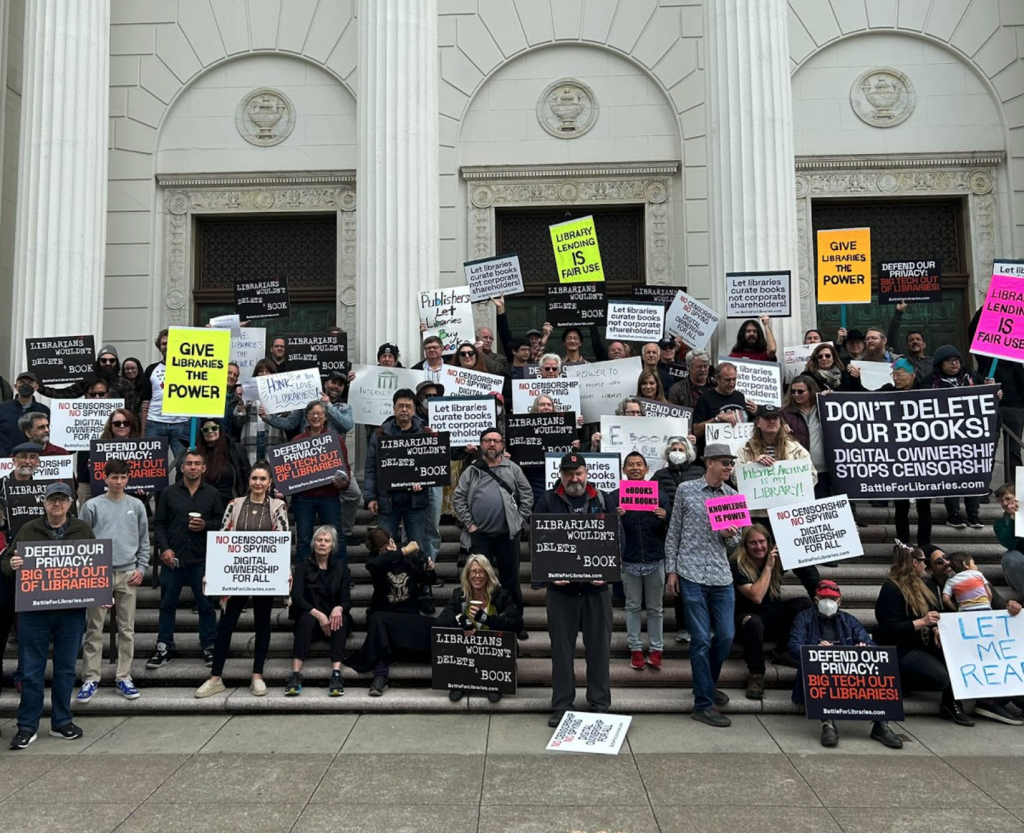
More than one hundred supporters gathered on the steps of the Internet Archive last Saturday to rally support for our library in the face of a judgment that threatens the digital future of all libraries.
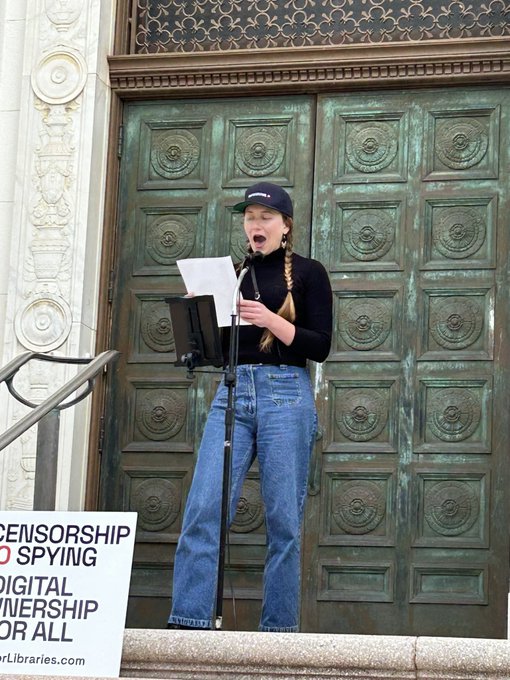
Digital rights advocate Lia Holland of Fight for the Future read from the letter signed by Neil Gaiman, Naomi A. Klein, Chuck Wendig, Karen Joy Fowler, Cory Doctorow and more than 1,000 additional authors who are speaking out on behalf of libraries, demanding that publishers and trade associations put the digital rights of librarians, readers, and authors ahead of shareholder profits.
Cindy Cohn, the Executive Director of the Electronic Frontier Foundation (EFF), who are representing Internet Archive in our lawsuit, underscored the valuable role that libraries play in protecting reader privacy; values that are not shared by the corporations and platforms that have become intertwined around ebooks. “When libraries can’t own ebooks, how private will your reading be?” Cohn asked. “Everyone deserves the right to read without someone looking over their shoulder.”
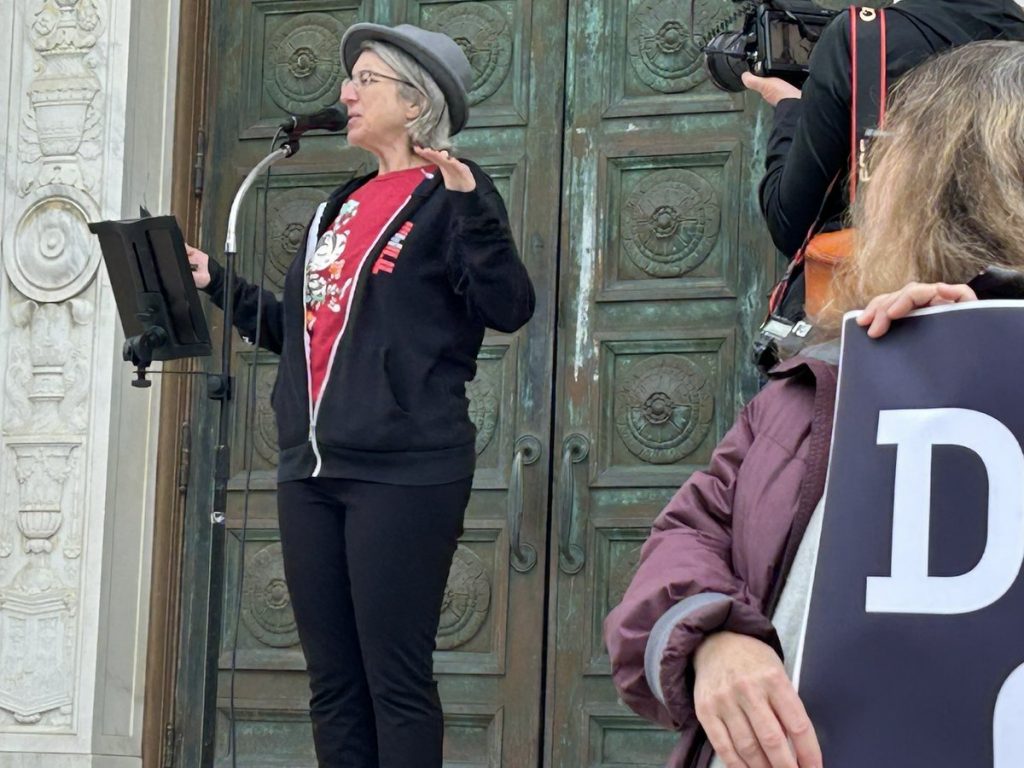
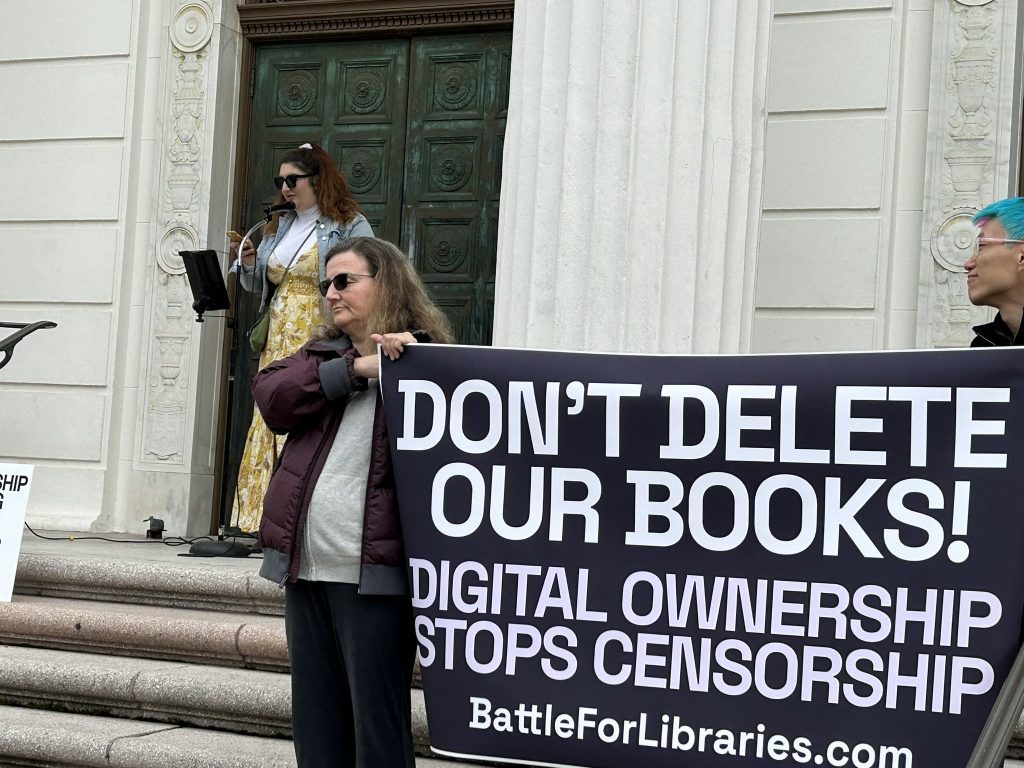
The Internet Law & Policy Foundry’s Lili Siri Spira spoke from her perspective as a “Gen-Z-Millennial cusper growing up on the Internet” about the importance of access to quality information in the face of book bannings and attacks on libraries. “As a former open-source investigator, I know first-hand how important open and free access to knowledge is in order to address the world’s injustices…As a former misinfo analyst, I know what information is out there to replace these burned books and it’s not good,” she said.
Brewster Kahle, the founder and digital librarian of the Internet Archive, gave an impassioned plea about why the lawsuit against the Internet Archive is harmful to libraries and the entire publishing ecosystem. “[The lawsuit] doesn’t make any sense for authors, it doesn’t make any sense for readers, it doesn’t make any sense for libraries, and it doesn’t make any sense for publishers. The library system…has always bought lots of books. But now, [the publishers] are saying you cannot buy an ebook. This makes no sense!”
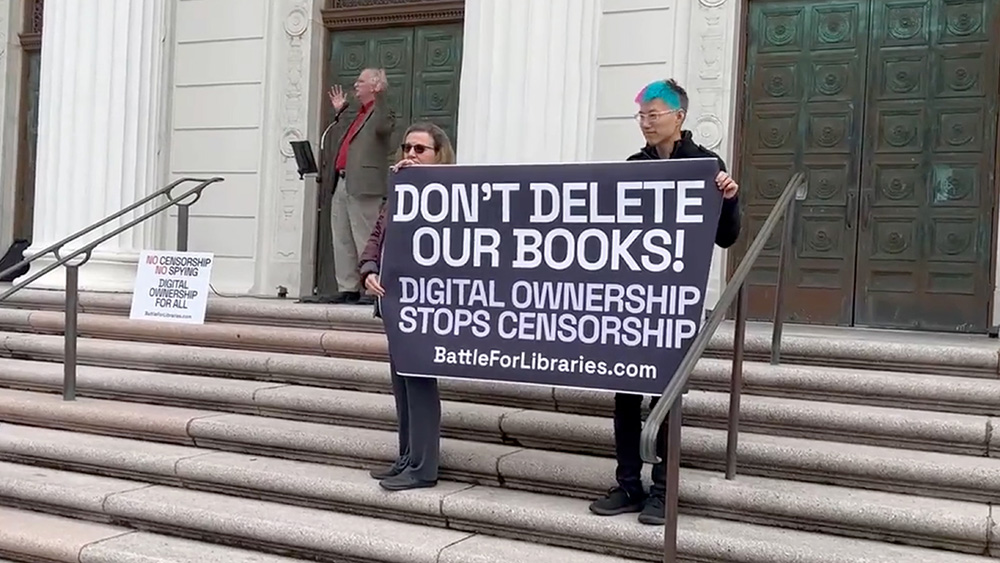
The rally wrapped with cheers for continued action in support of libraries’ digital rights. As EFF’s Cindy Cohn shouted to roars from the crowd, “On to the court of appeals!”
I’ll bet those publishers have spies everywhere informing them of what the IA supporters are up to.
Preserving cultural heritage is another important aspect of library digital rights. Libraries have long been custodians of our cultural heritage, preserving books, manuscripts, photographs, and other materials for future generations. In the digital age, libraries also play a critical role in
I agree with Mr. Sturgill. Libraries help preserve the books.
I’m not sure what the legality will be. I haven’t thought much. But I would love to see libraries have e-books and be able to lend them. Internet Archive has my favorite 8th grade world geography, 9th grade chemistry, and high school literature textbooks that I can’t find else where. I don’t want them to disappear. At this digital age, we need to be able to read things in our tablet computer.
Some people might not believe, but I think giving genuine libraries more rights will actually in the long term help publishers, authors, and all.
It is very similar to AI generators. The problem of progress is to maintain good care without ceasing to give power to the same companies that disempower artists every day.
Here a Solidarity Letter from several organizations and people in Latin America: https://datysoc.org/2023/04/11/pronunciamiento-conjunto-en-apoyo-a-internet-archive/
I think there is a “sunk cost’ fallacy in the publishers’ argument – the idea that they’ve put all this money into publication, they’ll stick with copyright maximization no matter the cost.
https://www.investopedia.com/terms/s/sunkcost.asp
“When people become emotional invested in business decisions, they may lose sight into what is really happening. Instead of relying on data, they have an unrealistically optimistic outlook on their poor decision.”
As it stands, there is a historical difference between the UK, which abolished censorship relatively early on – mostly because the MPs of that time were lazy and while a Hanover king settled in, they partied like there was no tomorrow, and let the censorship law lapse, then realized they didn’t need it after all – and the Kingdom of Spain, with its draconian Inquisition. By the time of the late 1700s and the Napoleonic Wars, the UK regarded Spain as little more than a convenient battlefield … there are consequences to stifling the free distribution of knowledge.
Let’s hope people and the courts remember and realise that. Because the publishers in question are proving with this lawsuit that they sure don’t give a darn whether society, its culture and its education go down the drain, as long as they can make a quick buck and vamoose to a nice island before it devolves completely.
As much as I love the IA, the court made the right decision here based on the law. It’s a clear violation of the owners copyright. The biggest issue here is that the copy rights were never intended to last a lifetime and need to be shortened to 30-50 years max. It actually served a purpose in preservation prior to the internet because there was no profit incentive to preserve public domain material because it was costly. With the internet and the decreasing cost of storage/technology and the ability to support the efforts via donations, ads, and commissions there is no longer the need to have long copyrights. The entire point of copyright laws is to incentivize the creation of new stuff for society. We need to lobby congress to go back to shorter copyright terms but I highly doubt that will happen.